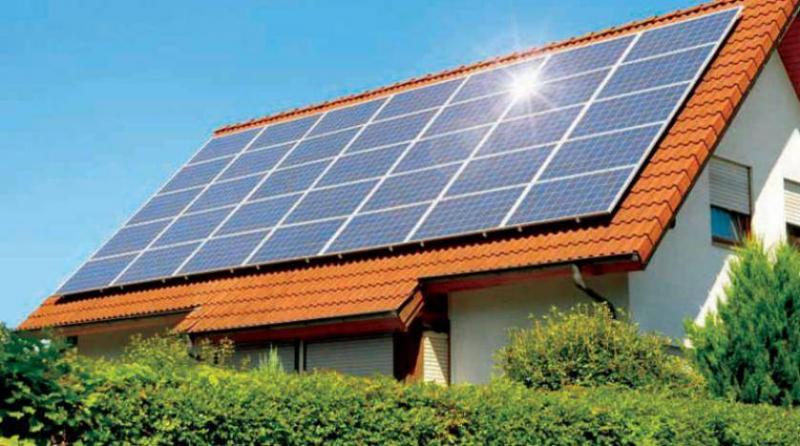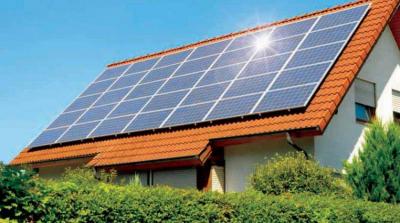It seems that solar energy is "ineffective" in Nabatieh, as the cries of the locals continue after their hopes for the project—intended to power one of the city's wells to pump water to numerous neighborhoods and nearby villages—were dashed. Residents of the Sisters' neighborhood in Nabatieh protested the unfair lack of water, asserting that the solar panels were installed without batteries and failed to pump water to their areas, claiming that "they laughed at us."
Nabatieh relies on three water sources: Ain al-Tasa, Fakhreddine wells, and Nabatieh wells. These sources have provided residents with only a few hours of water each week, with one local saying, "It doesn't fill the tank," expressing the frustration of those who took to the streets demanding their right to water and holding parties responsible for their inaction. According to the Water Authority, much of the crisis can be attributed to violations of the network and electricity and diesel shortages, prompting them to remove such violations to slightly improve supply and urging residents to rationalize consumption.
However, Fatima has a different opinion, stating, "The Water Authority does not respond to us; every day they promise to transfer the water and they lie to us, so we lost our patience and went out to the streets. We will not wait for promises or poorly studied projects; we suffer from poor distribution and favoritism in water distribution among towns and neighborhoods. The cost of transporting water has exceeded 600,000, which is beyond our means."
Typically, Nabatieh's villages and the city suffer from a water crisis during the summer due to shortages from Ain al-Tasa. However, this year's crisis has a different character, occurring amid electricity shortages and rising diesel prices, compounded by the high cost of water transport, which has ranged between 600,000 and 800,000 Lebanese pounds, unaffordable for many residents. While hopes for solar energy were high, it "disappointed us," says Maryam, who participated in the protest over the water crisis, noting that water "arrives drop by drop for two hours and then disappears, forcing us to buy it through trucks at a cost that exceeds our capabilities."
"The water issue is in its distribution," says one participant in the protest, which included burning tires and blocking the road leading to the commercial market: "All people need these days is water, and it is cut off without knowing the reason." Most of those who have taken to the streets are elderly, who understand the value of defending their rights. Um Ali cries out loudly: "We are deprived of a loaf of bread to buy water; may God have mercy on us." Repeated water outages for days on end drove Zainab to the street, demanding that the Water Authority and the municipality provide water, stating, "Don’t just make fun of us with a few drops," asserting that there is no response to their suffering and that distribution is manipulated unfairly: whenever they ask the distributor to transfer water, he claims he has done so, yet there is still no water.
The suffering of the Sisters' neighborhood extends to all neighborhoods in Nabatieh, which faces a severe water crisis. Its residents attribute the issue to poor distribution, depriving some at the expense of others, and the worsening crisis could push everyone into the streets, with the movement from the Sisters' neighborhood potentially igniting broader protests.
Certainly, the crisis is escalating, not only in Nabatieh but across all villages. Some have begun to pump water using solar energy, freeing themselves from the tyranny of diesel and electricity, while others have managed to secure a 24-hour electricity supply to power their wells and pump water into homes. Some are still waiting for relief, a trifecta that could turn the crisis into a catastrophe. According to Um Yasser, "Every three days we buy water transport for 500,000, so we need 4 million a month, and it's funny that we pay water fees, but Ain al-Tasa does not provide the required quantity, and Fakhreddine wells suffer from a shortage of diesel."
Sources indicate that "Hezbollah" provides monthly donations of diesel to the wells to alleviate the impact of the crisis on the people, yet these measures have not resolved the issue. The protesters sent their message: "We want water," expressing their demand loudly for the municipality and the concerned authorities to address the crisis. They vented their anger at the parties watching from the sidelines, clearly stating: "If the crisis is not addressed, the street will be our refuge." Will anyone respond to the residents' actions before the streets explode?




